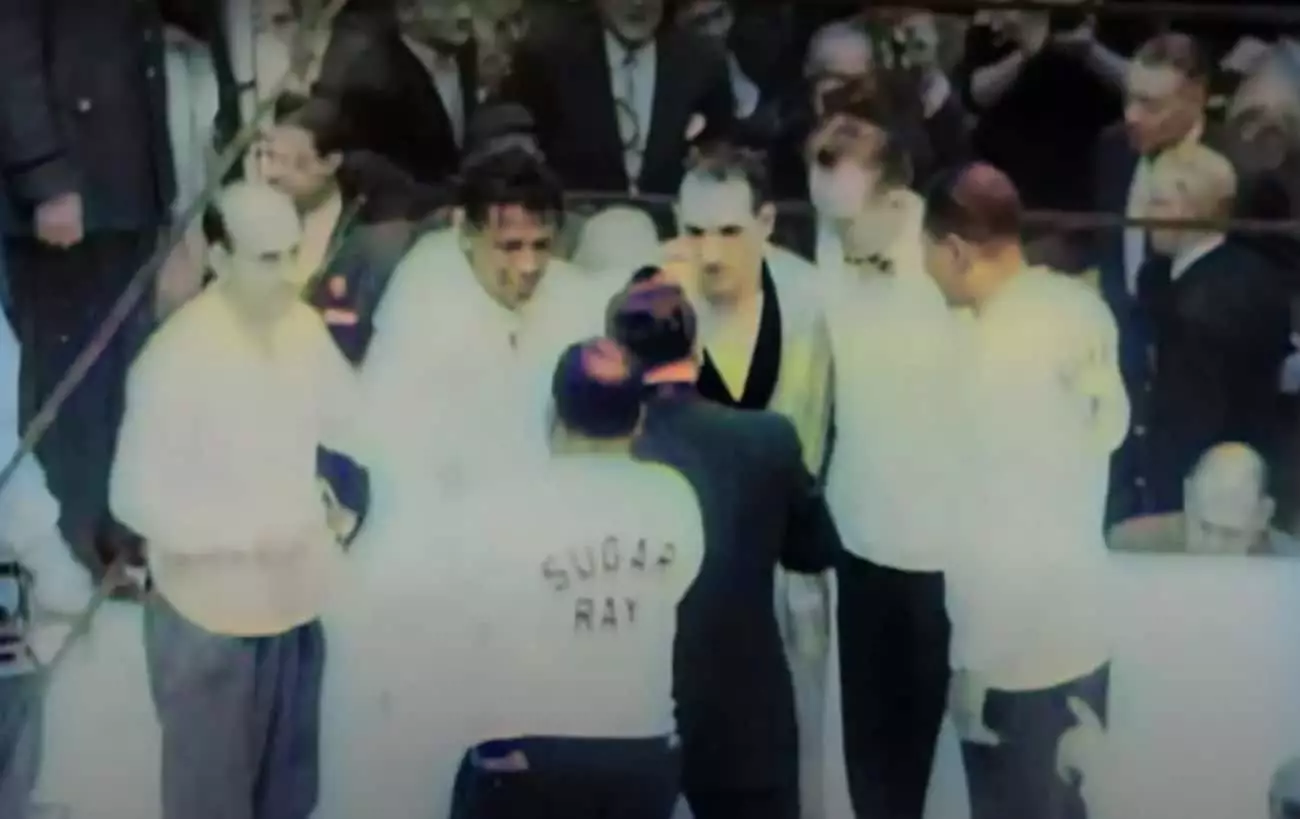Sugar Ray Robinson is a name that reigns supreme in the realm of boxing. Often hailed as one of the greatest fighters of all time, Robinson’s career is a tapestry of thrilling bouts, fierce rivalries, and groundbreaking achievements in the ring. While the legendary bouts against Jake LaMotta and Carmen Basilio are often highlighted, it is his fierce competition with Gene Fullmer that truly tested Robinson’s mettle and contributed to his enduring legacy.
The rivalry between Sugar Ray Robinson and Gene Fullmer unfolded in the 1950s, a time when boxing was a cultural phenomenon. Their first encounter occurred on a fateful night in 1957. Robinson, already an established champion at age 36, was riding high on the waves of his illustrious career, possessing an unprecedented record of 140 wins against only 4 losses. In contrast, the younger Fullmer, a tenacious warrior with a decidedly rugged style, entered the ring with a record of 37 wins and 3 losses.
From the very beginning, the stage was set for an intense showdown. Fullmer’s aggressive style and unyielding determination posed a distinctive challenge to Robinson, who had faced innumerable threats in his storied career. The bout culminated in a shocking turn of events when Fullmer delivered a brutal beating to a visibly fatigued Robinson, clinching victory by a clear point decision—with scores indicating that Robinson was bested more decisively than many had anticipated. This night marked a bitter defeat for Robinson, but it also ignited a relentless fire within him that demanded retribution.
Only four months after the disappointing loss, boxing fans were treated to a rematch that would go down in history as one of the most stunning comebacks in the sport. An older but undeterred Robinson prepared to reclaim his legacy in Chicago. Approaching the bout at the age of 37, the stakes were incredibly high. Fighting with a renewed sense of purpose, Robinson exhibited tremendous skill and tenacity.
The fifth round delivered an iconic moment that transcends the sport itself—Robinson’s stunning one-punch knockout. As he stepped back momentarily, he unleashed a left hook that struck Fullmer squarely on the jaw, sending him to the canvas in a bewildered state of defeat. This knockout not only avenged Robinson’s earlier loss but also solidified his place in boxing lore, showcasing his ability to reaffirm his dominance even against formidable opposition.
As their rivalry progressed to a third meeting in December of 1960, the tension between the two fighters reached a fever pitch. By this time, Robinson, aged nearly 40, had amassed an incredible record of 144 wins but had also displayed signs of wear from his extensive career. Fullmer, on the other hand, had bounced back from the knockout loss, earning a championship title with a ferocious determination.
Their battle in Boston was a grueling affair, marked by moments of brilliance intertwined with grueling exchanges. After a tumultuous 15 rounds filled with compelling action, the result was another contentious decision—a draw that left many observers debating the fairness of the scoring. Should Robinson have been awarded the victory? Many believed so; had he received the decision, he would have cemented his status as a six-time middleweight champion.
The ultimate confrontation between Robinson and Fullmer took place in Las Vegas, a fitting backdrop for the demise of their heated rivalry. In this fourth encounter, Fullmer once again demonstrated his raw power and resilience, overwhelming a Robinson who, by all measures, seemed to be on the precipice of retirement. The bout concluded with Fullmer securing a unanimous decision, ultimately affixing a 2-1-1 scoreline in favor of Fullmer over their four contests.
In retrospect, while Gene Fullmer may have won the rivalry by the numbers, the true victors are the fans and historians who continue to witness and analyze the brilliance of both boxers. Each fight in their series contributed not just to their personal legacies but also to the rich history of boxing itself.
Sugar Ray Robinson’s legacy is built on more than just titles; it stems from his unwavering spirit in the face of adversity, encapsulated vividly in his battles with Gene Fullmer. These encounters remind us that boxing is more than mere sport; it is a narrative of human resilience, struggle, triumph, and the quest for greatness.

